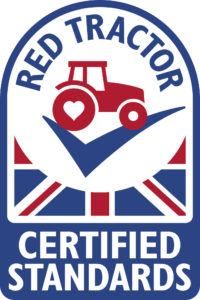Darren Yaxley,
Head of Reputation & Business Research, YouGov
![]()
Perhaps like no other time in recent history, the food that we consume as a nation is at the heart of some of the fiercest and most polarised public debates.
Open a newspaper on any given day and you will be met with questions about the impact of Brexit on food standards, what is the best way to produce food, for example injecting hormones into beef or producing chlorinated chicken, or whether the Government is doing enough to promote healthy eating.
In this context, it is interesting – and important – to ask the question: does the UK public actually trust the food that it eats? This report, the first UK Trust in Food Index, asks that question and it is clear from the data that the UK is performing very well – there is an encouragingly high overall level of trust in UK food.
Indeed, when compared to other aspects of UK life, trust in food is on a par with NHS care – a comparison that those in the food sector should not take lightly after the last 18 months. UK food is far more trusted than other aspects of UK life such as the media, financial services companies, and the legal system.
However, more importantly, food from the UK is trusted far more than food from other countries. This is especially true of food imported from the USA or China, where levels of trust are extremely low.
At the heart of the trust in UK food is a clear sense that the rigour of our regulation and food assurance schemes – voluntary schemes which set standards covering food safety, animal welfare and environmental protection – together play a strong role in ensuring the food we eat is produced to a high standard. This system of regulation, auditing, and third-party assurance governs the food we eat.
We know from other YouGov data sources that a lack of regulation harms the trustworthiness of businesses such as tech firms, online retailers, and social media companies. Of course, there is a different dynamic at play with food, but the key learning that can be drawn from other sectors is that regulation, or at least the perception of regulation, together with independent third-party scrutiny, can have a hugely beneficial impact on trust.
Christine Tacon,
Chair, Red Tractor

It was my hope that by launching the first edition of the UK Trust in Food Index that we would shed some light on how the UK public currently feels about what we eat at a time of intense scrutiny around food. And I have not been disappointed.
It is hugely encouraging to see that UK food is much more trusted than food from anywhere else in the world. Whether it is chicken, beef, dairy or fruit, British consumers place a higher level of trust in the food produced in the UK.
Of course, many of our international trading partners perform well – New Zealand is rated highly for its lamb, Ireland for its beef, and Spain for its fresh produce – but many aren’t trusted at all. Languishing at the bottom of the Trust Index are countries such as the USA and China.
The high level of trust in British food is not an accident, but the result of hard work across the supply chain over two decades. It has largely been driven by assurance schemes such as British Lion, Red Tractor, RSPCA Assured and the Soil Association as well as by the ongoing work of the Food Standards Agency. The data shows UK consumers recognise and trust these schemes to safeguard the quality of the food we eat.
For 20 years now, Red Tractor has helped to make sure that food on UK shelves has been responsibly sourced, safely produced and comes from crops and animals that have been well cared for. We were formed in 2000 as a total food chain initiative to restore trust in British farming after several high-profile food scares, including BSE, Salmonella, and Foot and Mouth disease, shocked the UK public’s confidence in the food they ate. Looking at the Index, trust in the safety, quality, and traceability of UK food all score highly, although it is clear more can be done.
Having world leading standards for food safety and food production has successfully helped safeguard the UK from some of the outbreaks and food contamination incidences that have been seen in other countries in recent years including the e-coli outbreak in Romaine lettuce in the USA. It is our system of regulation and assurance schemes that means that while, according to the Centre for Disease Control and Prevention, 17% of people in the USA suffer from foodborne illnesses each year, that figure is just 1.5% in the UK.
This report is rich with data and insights that I feel will help the entire industry identify both what we are doing well and where collectively we can make improvements. For example, not all the places where we buy our food are trusted equally and neither are all our global trade partners who provide us with much of our food.
This is the first report of its kind, and we are hoping to repeat it every year. That way we can share regular and meaningful insights into the UK’s trust in the food it consumes and ensure that Red Tractor remains a leading assurance scheme, supported by the whole food chain.